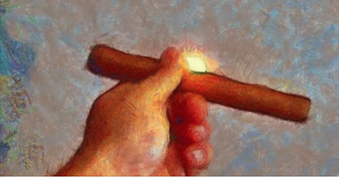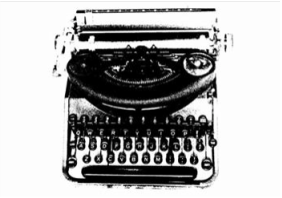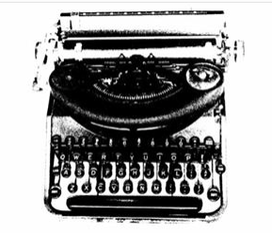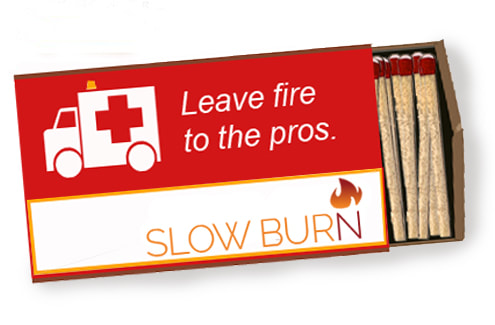 ...or click here to hear it in the author's own voice. ...or click here to hear it in the author's own voice. Is There Success In This Idiocy? He would also become a fixture in American households on Labor Day weekend. But first, he'd have to get past that childhood illness. It's hard to know what the illness was. He would never speak about it. All we know is that, repeatedly abandoned by his parents during his childhood, he was left in the care of his Jewish grandmother. And grandmother's cure for the mystery illness has nothing on traditional Jewish penicillin. INSTEAD, SHE PLIED HIM WITH BACON Who knows where the long lost Jewish bacon cure has disappeared to, or when we lost it. But as an adult, he admitted that in an attempt to ward off whatever disease it was that was attacking her grandson, grandma would cram little Joseph's mouth full of bacon. In a different place and time, this might have led to a career as a professional eater. "Megatoad" Matt Stonie holds the world record of 182 bacon slices in just five minutes. Six pounds. About 11 full packages of bacon. That was 2015 at Daytona, smashing the standing record set in 2010 by "The Human Vacuum" Mark Lyle, which was just 54 slices. But Joseph didn't seem to have much interest in a career as a professional eater. But he kept up his bacon regimen. One celebrity friend, interviewed in GQ Magazine back in May, says he'd seen the guy sit down to breakfast, order 24 slices of bacon, and eat them all. PROFESSIONAL EATING ASIDE, JOSEPH FOLLOWED IN HIS PARENTS FOOTSTEPS The reason they left Joseph with his bacon-wielding Jewish grandma was because they had an itinerant lifestyle. They were vaudeville performers. Mom played piano. Dad was a song and dance man. Sometimes, little Joseph would appear in the act. At age 5, he launched his performing career singing, "Brother, Can you Spare A Dime." But mainly, his parents left him with grandma. It made him very insecure. AND IT LED TO A MONUMENTAL PERSONAL BRAND Determined not to be left behind, Joseph became ambitious and driven. He began developing his own stage act. As the spotlight continued to shine upon him and his fame grew, he was very shrewd about controlling his career. Unlike so many in his profession, he kept a tight rein on the direction of his career and the ownership of his material. He ultimately became a multimillionaire. His energy could be frenetic. He was endlessly creating. When he was living in Los Angeles, his celebrity neighbors would find themselves drafted into impromptu film performances right in his living room. The man who had once been insecure, bacon-stuffed little Joseph was very candid about his fame. "I'VE HAD GREAT SUCCESS BEING A TOTAL IDIOT" Yes, he said that. He called himself a total idiot. Hard to know when or where he said that, exactly, because it has become pervasive. It has even turned into an internet meme. But it's impossible to argue either the success or the idiocy. At one point during his career, he was called the monkey to his peformance partner's role as the organ grinder. But the "total idiocy" that built his success was fueled by tremendous insecurity. It's probably one of the reasons that in his act, he was big and broad and usually playing to the back row. He had eccentricities. Besides the bacon, that is. He never wore the same pair of socks twice. It's been reported that he'd change them four times a day. AND HIS FANS LOVED HIM At the same time, his critics hated him. None of it changed the fact that he also cast himself as a great humanitarian. For his humanitarian work, he was even nominated for a Nobel Prize. In France, he was awarded a Chevalier in the Ordre national de la Légion d'honneur, the highest order of merit that country can bestow. It's essentially a knighthood. The French have lionized him as an auteur. When you see someone with this kind of raging success, it's hard not to think, Wow. They have it together, don't they. BUT AGAIN: A CAREER FUELED BY INSECURITY The Fabulous Honey Parker and I have a friend who grew up in the northeast. He went to prep school and spent time living in New York. At one point, he became friends with Joseph's adult son. They visited dad backstage in his dressing room at a performance. It seems they were sitting there, waiting for dad to appear, fresh form the stage. Our friend describes the door opening, and being engulfed by a whirlwind of narcissism and insecurity. He described it as overwhelming. Meeting this world-famous multi-millionaire, all he can remember experiencing was the man's self-doubt, harsh self-analysis, and his need for affirmation. BUT WHEREFORE LABOR DAY? Ah, yes. Labor Day. The holiday that spawned this train of thought. For a quarter of a century, Labor Day was the day that this man would launch a crusade to help children for whom the secret Jewish bacon cure was not enough. During his tenure as Labor Day's ringmaster, he helped raise over two and a half billion dollars for children in need of more than bacon. It was a cause that he took personally, and to which he dedicated himself annually. EVENTUALLY, THAT STAR WAS EXTINGUISHED Bad press, accusations, criticism, outdated attitudes, fragmentation of TV viewership--many things contributed to the death of the Labor Day manifestation of the cause. But for 45 years, The Jerry Lewis MDA Labor Day Telethon was a fixture on American televisions. But like the arc of little Joseph Levitch's career, it was a huge success that eventually became the punchline to a joke. And little Joseph Levitch, whose stage name became Jerry Lewis, built a stellar career on the foundation of a personal brand infused equally with talent and insecurity. If you didn't see the news, Jerry Lewis went to the great telethon in the sky just a couple of weeks shy of Labor Day, on August 20, 2017. He was 91 years old. SO WHAT ON EARTH WHAT DOES THIS HAVE TO DO WITH SMALL-BUSINESS BRANDING? Funny you should ask that. I was asking myself the very same thing when I stumbled upon the mystic Jewish bacon cure. I wanted to know more about the childhood malady that Josephs' grandmother fought back with bacon. Can I use it? Will it help me? I'm very pro-bacon. But the more I searched, the less there was about the illness. But the more there was about the carefully built brand that was Jerry Lewis. The environmental conditions and the family dynamic that led to his success as a one-man comedy empire were fascinating. And it got me thinking about how often the quest for perfection shoots a small-business brand in the foot. "DONE IS BETTER THAN PERFECT" That adage comes to us from the founder of Facebook, Mark Zuckerberg. And it shines a laser onto the hot spot that so often prevents a brand from ever getting off the ground. Throughout my career working with small businesses in branding and advertising, it's impossible to count the number of branding efforts and advertising campaigns that have been derailed by fear. Yet in Jerry Lewis, we have the sky-high success of a one-man brand founded upon and driven by fear. Some might argue that the Jerry Lewis brand is built on cruelty and megalomania. That's an easy, pop-psychology way to explain it. It's also ignorant and dismissive. NOTHING IS EVER THAT SIMPLE But if you start peeking into the life that was Jerry Lewis, you see a flawed human being who built a quintessential small-business brand that eventually became world-famous. He did it without venture capital. He did it without a logo. He did it without advisors or gurus or email marketing or sales funnels. He did it purely through intellectual investment and sweat equity. And, perhaps, bacon. What's in your wallet? As always, Blaine Parker Your Lean, Mean Creative Director in Park City
0 Comments
 DEATH OF A BRAND That brand was a cult of personality. It had charismatic appeal. An iconic image. Greatly anticipated speeches. A consistent and unchanging public wardrobe. A sordid family saga. Yes, there's question is your head is asking right now... IS THAT FIDEL CASTRO? Or is it Steve Jobs? And admittedly, nobody around here had ever considered the parallels. Then we took a glance at the Fidel brand through the lens of El Caballo's demise last Saturday. Whoa. Did you know that Fidel had at least 11 kids by various women? (There could be more.) Some of them live in the U.S. and are public opponents of Fidel's political legacy. TALK ABOUT SORDID FAMILY SAGA And in case you didn't know, the moniker El Caballo was bestowed upon Fidel by Cuban bandleader Benny Moré, a kind of real-life Ricky Ricardo. Moré's nickname for Fidel (which means "The Horse,") is a reference to the great dictator's infamous philandering during the 1950s and 1960s--a time when Castro was a sex symbol in Cuba. Yes, that's right: Fidel Castro, sex symbol. Sometimes a cigar is...well, never mind. Any Freudian symbolism aside, it's safe to say that sordid-family man Steve Jobs never exactly enjoyed that kind of profligate, prodigal status. Although, there is a video out of MIT called Steve Jobs, Secret Sex Symbol. There's his long-disavowed daughter, Lisa. And Steve infamously wanted tantric sex in the garden shed with girlfriend Chrisann Brennan. Anyway, stud nicknames and cigars aside, this is about something else. NAMELY: BUILDING AN EMPIRE ON PERSONAL BRAND It's safe to say that the Cuban empire is a threadbare utopia--a shattered dream through which 1950s American cars putter, and any concept of personal wealth was long ago laid waste. Despite that, 1959 to present day is quite a tenure for a tyrant whose social and economic policies ranged from shaky to vicious. The Cuban economy has long been a mess. Intellectuals and artists who disagreed with Fidel were jailed and even tortured. And despite the obvious socio-economic failures, the whole branded utopian miasma prevailed. Fidel was long regarded as The Dude in Havana. In his Fidel biography, Political Science Professor Paul C. Sondrol from the University of Colorado uses a delightful and disturbing turn of phrase, calling Fidel "quintessentially totalitarian in his charismatic appeal." For some, Fidel's speeches were greatly anticipated (much like Steve's). He'd go on for hours--without notes (also without PowerPoint)--and speak on a range of topics from agriculture and the military to filmmaking and chess strategies. AND THEN, THERE'S THE OUTFIT The olive drab fatigues. Fidel's own version of the black mock turtleneck. But unlike Steve, for whom the turtleneck was something of an accident, there was nothing accidental about Fidel's getup of the grunt. In public, for 37 years, Fidel only ever wore the green fatigues. The message was clear: "I am and always will be the perpetual revolutionary." There's a famous billboard in Cuba, featuring a drawing of Fidel in profile, wearing his uniform. The copy on the billboard says, "Luchar contra lo imposible y vencer." Translation: "To fight against the impossible and win." Seems a win in Fidel World is a different kind of victory. CONTROLLING THE FLOW OF INFORMATION WITH AN IRON MUZZLE Wait. Information control. Are we talking about Fidel now? Or Steve? Castro's private life is little known, thanks to state-media censorship. (No girl & cigar, blue-dress media moments in Havana, that's for sure.) The Committee To Protect Journalists calls Cuba one of the "10 Most Censored Countries." According to Human Rights Watch, "Cuba has developed a highly effective machinery of repression." It's also reported that the Cuban Interior Ministry was trained by the dreaded East German Stasi. Steve could be secretive and repressive, too. According to Inside Apple author Adam Lashinsky, Steve's company was notorious for "windowless offices, a neutering of egos and an ethos of fear with 'cultish' overtones." "Staff members who have left the business live in fear of retribution." There's "A taskforce called the Worldwide Loyalty Team, which some employees have referred to as 'the Apple Gestapo...' a group of moles tasked with spying in Apple headquarters and stores." EXCEPT THAT, UNDER STEVE, APPLE DIDN'T JAIL ITS DISSIDENTS Apple might have made their lives difficult. A dissident Apple employee, instead of being thrown into a dank cell to rot for years, is more likely to go home and bitch to his wife about being fired without two weeks' notice. Still, Steve was about total control. As was Fidel. Says the Fidel biographer Peter Bourne, writing in Fidel: A Biography of Fidel Castro, "Fidel's domination of every aspect of the government and the society remains total. His personal need for absolute control seems to have changed little over the years." Says the Steve biographer, Mr. Lashinsky, "A culture of fear and intimidation found roots throughout the organization," and quoting the Telegraph quoting Mr. Lashinsky, "a dictatorial CEO rules with an iron fist." Apple's legal team was known for threatening reporters. Censorship is abundant in the App Store. OH, COME ON: STEVE AND FIDEL ARE NOT THE SAME THING No, they're not. But in both cases, we're talking about a huge brand controlled by an enormous ego. And lest you find a flaw in this thinking, consider what the Wall Street Journal says: Marketing gurus tell us that a successful brand functions as a store of values. It encapsulates a pool of attractive ideas that satisfy customers' desire for meaning. To encourage loyalty to a brand, they say, the marketer must cultivate a sense of belonging and personal identification with the individual. Well, THAT certainly sounds like someone here in this screed is trying to say the "death of a brand" assertion applies equally to a despot in green fatigues as one in a black turtleneck. UNTIL YOU READ THE NEXT PARAGRAPH OF THE WSJ ARTICLE Ready? (Remember, this is a quote not from your relentless screed, but Dow Jones & Company's great gray flimsy.) For many within a core constituency of left-leaning, relatively well-educated people both inside and outside Cuba, Castro's "revolution" achieved precisely this. To this niche market, Cuba evokes a set of magical buzz words long-favored by the radical left: "resistance," "social justice," "struggle." It represents an idealized, selfless counterpoint to ruthless, greedy capitalism. It is the alternative to brand U.S.A. The title of the WSJ article is "Brand Cuba." It was published on March 11, 2008. It's an indictment of the brand and the ongoing efforts to prop it up and make Fidel's core customer feel one way about the "business," as it were. Yes, Steve Jobs might have been a petty tyrant with a personal "gestapo." That's also insider hyperbole. And nobody was ever forced to live and die beneath the Apple logo. They could come and go as they pleased. (Within reason, of course, depending upon their terms of employment and any non-compete clauses. Nobody was pilfering their stapler and the Scotch Tape dispenser on their way out of Cuba.) LIVING AND DYING BENEATH THE BANNER OF FIDEL WAS A MANDATE It still is, but we'll see how long that lasts. So-called "normalization" of relations with Cuba has been underway for a while. But the point is this: anyone who wishes to, with any business of any size, has the power to build a brand. That brand can make the core customer feel one way about the business. That brand can "satisfy customers' desire for meaning." That brand can even be enormously flawed, run by a spiteful, malicious, vindictive, nasty egomaniac with a charming public face. That brand can be led a bespectacled man in a black turtleneck. Or by a bearded man in green battle dress. Yes, the U.S. brand is flawed these days. But its liberty and light still far outweigh the tropical darkness that reigns over Havana. AS FOR YOUR BRAND, YOU ARE UNLIKELY DESPOT MATERIAL Despots don't read the screed. You are able to "satisfy customers' desire for meaning." You can dress the part of your brand. (Many brand representatives do.) You can even promote "social justice," "struggle," and "represent an idealized, selfless counterpoint" to whatever market evil you desire. I would love to always wear a seersucker suit and a Panama hat as I launch a market offensive against vocal fry and slack-jawed up-speak. Not sure I see a lot of potential profit in that, but I would be applauded by throngs of people of a certain age. And I certainly wouldn't be forcing anyone to live with me on that island. Yes, your brand is an island. It should a preserve, not a prison. As always, Blaine Parker Your Lean, Mean Creative Director in Park City  PERSONAL BRAND REDUX Last week, we dove into personal brand for a gentlemen who's a copywriter at a radio station group. Based on all the cards and letters and Facebook comments, some of you found that really useful, which is gratifying. And you may be glad to know we're venturing there again. Hard not to, really, when one receives a missive like this: "How about branding when it's just you who is the product? How do you brand a person who is, say, a Midwestern white woman and has no idea what the crap her brand is? "But enough about me. How about branding for solopreneurs when what they are selling is subjective, like art is to some people, not a hard and fast product? WE'VE SORT OF COVERED THIS BEFORE--BUT WAIT, THERE'S MORE I happen to know that the woman asking this question is an actor, so I'm going to infer that she's posing the question as an actor and an artist. The first part of this question is a really good one. How do you brand a Midwestern white woman who has no idea what her brand is? On the face of it, it sounds as if this woman is implying that "Midwestern white woman" is code for "dime a dozen," "uninteresting," or "boring." If that's the case, here's my first suggestion: tell that to Edie McClurg. That woman has made a fortune being a Midwestern white woman. If you don't know the name, you probably know her as Principal Rooney's secretary in Ferris Bueller's Day Off. She's the one with the upper Midwestern accent (don'tcha know), sniffing WiteOut at her typewriter and saying that Ferris Bueller is a "righteous dude." ONE DOES NOT GET MUCH MORE MIDWESTERN THAN EDIE The Fabulous Honey Parker and I know Edie, and can assure you: she is one extraordinary and hilarious woman. We've watched her at a party engage in competitive improv with another actor friend of ours, and it was one of the most relentless moments of live comedy we've ever witnessed. In fact, that other friend of ours has also been profiled here as a stellar example of personal brand. His name is M.C. Gainey, and his IMDB filmography lists all the characters he has played, from "Man In Cell" and "Big Jim," to "Tiny" and "Swamp Thing." He's a large man from Mississippi who (despite being a classically trained actor) has capitalized on his size and ability to seem dangerous. He could have easily said, "How does a big lug from Mississippi brand himself when he has no idea what the brand is?" WELL, WHAT ARE YOU GOOD AT AND HOW DOES THAT TRANSLATE INTO A CASTABLE PERSONA? Going back to the Midwestern white woman angle, Edie McLurg has absolutely defined her personal brand as the white woman with the cheery, upper-Midwestern accent. According to Wikipedia, she's been cast as that person in 90 films and 55 TV episodes. In fact, she apparently goes to auditions where she sees casting specs calling for "An Edie McClurg type." On a similar note, a friend and Hot Shots subscriber who can do big, booming comedy VO, once found himself in an audition for a "Gary Owens type," and he was sitting in the waiting room with Gary Owens. These are largely unassuming people who figured out a well-defined persona that makes the audience feel something. To which I ask... SO, WHAT'S YOUR PERSONA AS A MIDWESTERN WHITE WOMAN? You're obviously not Edie. She's got that covered. Are you the anti-Edie? Are you the sinister Midwestern mom? Are you the deadpan Midwestern spinster? Are you the Midwestern nuclear physicist mom? Especially in the world of casting actors, the more readily you can define your type, and the easier you can make it for casting directors and other decision makers to understand how they should feel about you, the more readily they can point and say, "That one!" See also last week's screed where we invoked the names of well-known comedians. SEE ALSO: CHARLES SPENCER CHAPLIN The man was a generalist. He was a performer in the tradition of British Music Hall and Vaudeville, a writer and a composer. When he was brought to the US by the prestigious Fred Karno company, he was scouted for the film business. So he eventually added "movie actor" to his resumé. But it wasn't until he took a huge pair of pants and an enormous pair of shoes from Fatty Arbuckle's wardrobe, and a too-small jacket from Harold Lloyd's wardrobe, added a cane and a bowler hat and a little brush mustache, that Charlie Chaplin became a huge-selling brand. His beloved and downtrodden little character, The Tramp, is iconic. He didn't say, "I can do everything, I shouldn't pigeonhole myself." Instead, he made his own pigeonhole and lived in it. OF COURSE, HE WAS ALSO IMMENSELY TALENTED--WHICH HELPS Chaplin was an artist of the first order. Which leads us to the second part of the actor's question, to wit: how to brand something subjective, such as art. It all goes back to everything said above, i.e. persona, and the requirement of focus. In the past, we've talked about the photographer of sun-drenched mountain landscapes, Ray Crosby. Ray Crosby's Sunmill Studios is (a) an art business, (b) distinctly about one kind of photography, and (c) about subjective appeal. It's calculated to make the customer feel one thing. And it's not for everyone. A lot of people would regard Crosby as "easy to like" and not be interested. Which is fine. Crosby doesn't care. He knows who his customer is and isn't worried about who his customer isn't. I also happen to know that Crosby, under another name, is also a sometimes sports photographer and a real estate photographer. That other name is Blaine Parker. THE RAY CROSBY BRAND IS A NECESSITY Blaine Parker can't possibly be taken seriously as a writer, a branding consultant and a VO performer as well as a fine art photographer. It's just too much. One of these things is very much not like the others. And art is so subjective, and the customer so needs to feel one thing and one thing only about the art, that the alter ego and standalone brand are a requirement. So, again, what is the one thing that the customer should feel about the brand? Sunmill Studios is so obviously about a "photographer of light" brand that there really isn't much question. The customer should feel captivated by rich, dense, vibrant sunrises, sunsets, mountain vistas, forests and snowscapes. If not, then that person is not the customer. Another example of a polarizing art brand is the late Thomas Kinkade, the Painter Of Light. His endless paintings of homes lit from within by a warm glow have sold for enormous amounts of money and made him a very wealthy man. FANS LOVE HIM. ART CRITICS HATE HIM. Which all goes to an important point: as long as your brand is authentic and resonant, it doesn't matter whom you alienate. It matters only that you appeal to the right person. Art critics hate you? No problem, as long as your well-defined art buyer loves you. It really doesn't matter what the business model is, as long as you understand your customer (the buyer) and make that person feel the right thing about your brand. Subjectivity be damned. You're never going to appeal to everyone. So don't try. Refine your brand and appeal to the one person who matters. You'll be much happier--and much wealthier.  Last time, we touched on the mutually inclusive ideas of social media and SEO. It's gratifying to know that some of you found that little rant to be useful. Thanks for the notes. One can only assume that those who remained silent were snoring in the back of the class over that one. So it goes. It's still worth every penny you pay for the product. (Yay, freebies!) Next up, we have a really interesting question. This reader to Hot Shots asks, "How can I, as an employee, build a strong personal brand?" Obviously, the first thing to do is make a lot of noise. YELL. THROW THINGS. BERATE YOUR FELLOW WORKERS. There ya go. My work here is done. See you next time! OK, in seriousness, that kind of performance will certainly create a brand. Maybe not a desirable one. But it works for some people. But it probably won't work for our friend here, who works for a group of very friendly and conscientious radio stations. He goes on to say, "When I say personal brand, I'm not only talking about how our clients feel about me, but how my colleagues feel about me." (See how he's been hanging around here long enough to be using the vernacular? How people "feel about me." Feelings rule branding. Right on!) "For example, I've had to work hard to earn the trust of our sales reps. I've done this by taking specific steps (being open minded to their ideas, never getting flustered or raising my voice at them, working long hours to meet deadlines). I do this to gain a positive reputation which, now that I think of it, is kind of like a brand." OBVIOUSLY, ONE COMPONENT OF THIS GENTLEMAN'S BRAND IS SELF CONTROL He might even be a candidate for sainthood. That aside, he is definitely on the right track for establishing a solid personal brand. And yes, what we're about to discuss is personal brand couched in the context of a radio station creative department. Despite that, personal brand is applicable across the board. ANYONE can benefit from a strong personal brand--but probably nobody more so than a sole proprietor or solopreneur. See also: personal brand in the context of comedians. Every successful comedian has a personal brand. That brand is always a sliver of his or her personality amplified many times over into a comedic stage persona. THAT STAGE PERSONA IS THE MARKETABLE CASH COW OF PERSONAL BRAND Jeff Foxworthy is the "You might be a redneck if..." brand. He comes off with affable-redneck, good-old-boy charm. He has parlayed his personal brand into the hugely popular Blue Collar Comedy empire. He makes a killing along with a fellow personal-brand expert, Larry the Cable Guy--he of the good-natured, working-class, "Git 'er done" persona. You probably never heard of Jacob Rodney Cohen. Jacob was a failed entertainer who had dropped out of show business to become an aluminum siding salesman. When Cohen tried to revive his comedy career, he went deeply into debt. Cohen finally realized he was lacking a personal brand. He did something about it. Goodbye, Jacob Rodney Cohen. Hello, Rodney "I don't get no respect" Dangerfield. As you know, his brand was as the guy for whom nothing ever goes right. The failed entertainer and aluminum siding salesman became an icon and an obscenely wealthy man. PERSONAL BRAND IS CRITICAL TO SOLOPRENEUR SUCCESS When you're a single person swimming in a sea of me-too-ness, standing apart and being the desirable choice can be the difference between mere survival and making a killing. One of the killer motivational brands of the 21st century is Timothy Ferriss. There are all kinds of experts out there trying to capitalize on the century-old Think And Grow Rich model. Tim Ferris has capitalized on that like nobody else with his 4-Hour Work Week empire. He's taken the "work smarter, not harder" dynamic and turned it into a bestseller ride at the New York Times, Wall Street Journal and USA Today. How much different is he than a lot of other solopreneurs plying this same trade? Not a lot, when you get right down to it. He might be better educated (Princeton) and a better athlete (kickboxing), but his ideas are not that far outside of convention. THEY'RE JUST PACKAGED AND PRESENTED BETTER AS PART OF A KILLER BRAND Circling back to our radio guy's question, how can he as an employee, build a strong personal brand? Time to consider this: exactly what one thing do you want to be known for? I know an ad agency copywriter whose personal brand was as the "No Problem!" copywriter. This copywriter's job as a freelancer was to come in and make things work when others were having challenges. Whatever this copywriter was asked to do, the answer was always, "No problem!" The demeanor was always cheery. There was never any resistance. The ideas were always top-notch and out-of-the-box. This talented copywriter was determined to be a pleasure for everyone involved--but probably no more so than for the Creative Director who had made the call in the first place. CAN YOU SAY, "FULL-TIME INCOME FOR WORKING HALF THE YEAR"? This copywriter had an impressive run in Los Angeles and New York and always worked. In my case, my personal brand as a copywriter didn't work out exactly as I had planned it. About 20 years ago, when I first walked into a Los Angeles radio station as a copywriter, I did it with a singular goal: produce work as good as what was coming out of national advertising agencies. Admittedly, there were times where we actually achieved this goal. The multiple national awards are evidence. But very quickly, it became apparent that in the context of radio, that goal isn't always appropriate. For one, there's a lot of direct response advertising that doesn't lend itself to the kind of creative that big ad agencies produce. Moreover, with DR, you live and die by response. SO IF THE PHONE ISN'T RINGING, SOMETHING'S WRONG And often, the task is to figure out what that something is and replace it with better. My personal brand became something much different than originally planned. I became the guy who raised the bar on DR. Many account reps wouldn't come to me immediately. They would start with whatever direction seemed appropriate. If that direction failed, they showed up in my office. "This isn't working. What do we do about it?" Or, if they had something they knew immediately was going to be challenging, they'd come looking for a solution. I had become the DR Problem Solver. Got a failing campaign? Bam! Quadrupled response overnight. Got a script that isn't making anyone happy? Here's why it feels wrong, let's fix it. Got a client who needs to sound different than the other five advertisers just like him? Here's a new direction. WHEN "GOOD ENOUGH" WASN'T CUTTING IT, I WAS YOUR GUY Today, close to a decade after leaving that gig, I still get calls from radio people who need help raising the bar. (Interestingly, most of the time, they're unwilling to pay for it. They get caught up in the poverty mindset of radio station budgets. But that's a whole other screed.) When I was busy doing this in LA, there was another writer who was widely recognized as the person to call when you wanted an idea that was way over the top. This writer had a hugely successful business creating radio advertising that was out-of-the-park hilarious. You could hear a commercial on the radio, and as soon as you were done wiping the spit-take off the inside of your windshield, you knew immediately who had created it. STRONG PERSONAL BRAND--KNOWN FOR ONE THING AND ONE THING ONLY So, all this said, it's great to be known for diplomacy. It makes people feel comfortable. They know they can work with you. But what's the writing talent? What do you inject into your work that nobody else does? Can someone hear the work on the air and know immediately who created it? There are copywriters all over the country who have that kind of style. Whether it's TV or print or whatever--it has their fingerprints all over it. I would frequently get phone calls or emails from radio people asking me, "Did you do that new spot for so-and-so? Killer!" BE INDELIBLE Figure out not just what kind of diplomat you want to be, but what kind of artist. Yes, "artist" might sound lofty. But we're talking about taking mere facts about a business and spinning them into a tapestry that makes the prospect want to pick up the phone. The prospect needs to feel something that inspires him or her to take action. To paraphrase everyone's favorite unreliable resource, Wikipedia, art is about creating an artifact expressing the author's imaginative or technical skill, intended to be appreciated for its emotional power. YES, A RADIO COMMERCIAL IS DESIGNED TO DRIVE TRAFFIC But it does that by eliciting an emotional response in the prospect. The writer's skill here is key. In every case discussed here, it all boils down to emotional power. And that, my friend, is how you do or don't get no respect as a personal brand. It doesn't matter whether you're a copywriter or a solopreneur or running a 7-figure operation. No matter who you are or what your brand is, make them love you or make them hate you. But make them feel something. And doing that requires a skill. What's in your toolbox? |
AuthorBlaine Parker is prone to ranting about any and all things related to brand. In many ways, he is a professional curmudgeon. While there is no known vaccine for this, the condition is also not contagious. Unless you choose it to be so. Archives
February 2022
Categories
All
|
|
© Copyright 2020 Slow Burn Marketing LLC |

 RSS Feed
RSS Feed

